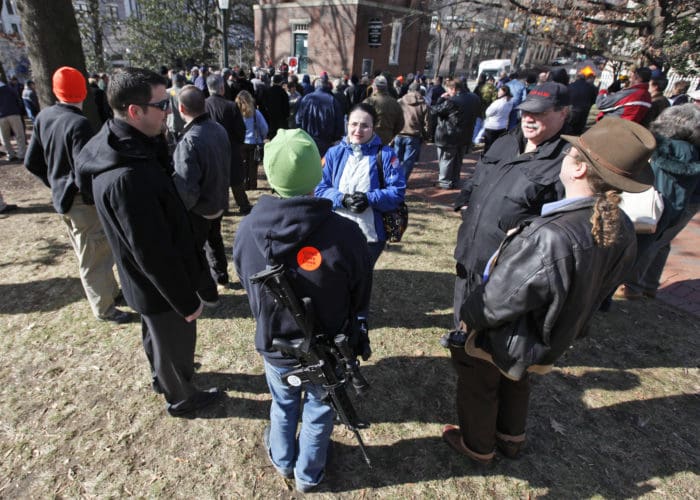Now that Michael Bloomberg’s no longer occupied on the campaign trail, he can refocus his attention on financing the never-ending effort to disarm Americans, both on the streets and in their homes.
This, uh, think piece on open carry and the free speech is from his anti-gun agitprop generation outlet, The Trace.
For a chill on expression to cross over into a free speech violation, the threatening consequence of speech has to be immediate — like getting arrested for your dissenting speech, losing your job for your political views, or being shot at a protest. “It has to be some kind of tangible, compulsive, coercive impingement on you,” said (William and Mary Law School professor Timothy) Zick. One’s own perception that speech could get them into trouble is called “subjective chill,” and the Supreme Court has held that First Amendment claims based on that definition are dead on arrival.
As a result, a court would likely find no immediate threat to people who don’t attend protests because of open carry practices. As Zick noted, “Your willingness to rally amongst guns depends heavily on what you believe about guns.” Not everyone thinks that guns are inherently dangerous, and open carry laws by themselves don’t guarantee that people will use their firearms in a dangerous way. The U.S. Court of Appeals for the Fifth Circuit relied on this reasoning in a 2018 case about concealed carry in public university classrooms in Texas. A group of University of Texas professors argued that the presence of weapons in class would chill their First Amendment academic freedoms. But the court found they were choosing to self-censor their speech “based on the hypothetical future decisions of students.”
Some legal experts disagree with the jurisprudence and believe that guns in public spaces are incompatible with a functioning democracy. In a paper arguing that the Second Amendment right should exist only in the privacy of one’s home, Darrell Miller of Duke Law School argued, “The presence of a gun in public has the effect of chilling or distorting the essential channels of a democracy.” He added, “Valueless opinions enjoy an inflated currency if accompanied by threats of violence.”
Likewise, Mary Anne Franks of the University of Miami has argued that, under the sway of the gun lobby, the Supreme Court has transformed the Second Amendment into a “superright” — one with the ability to override others — with the power to cancel out the freedom of speech by intimidating people into silence. “This chilling effect,” she noted in her book The Cult of the Constitution, “is felt most acutely by the least powerful members of society.”
– Olivia Li in When Protestors Carry Guns, Does It Impede Others’ Free Speech?
